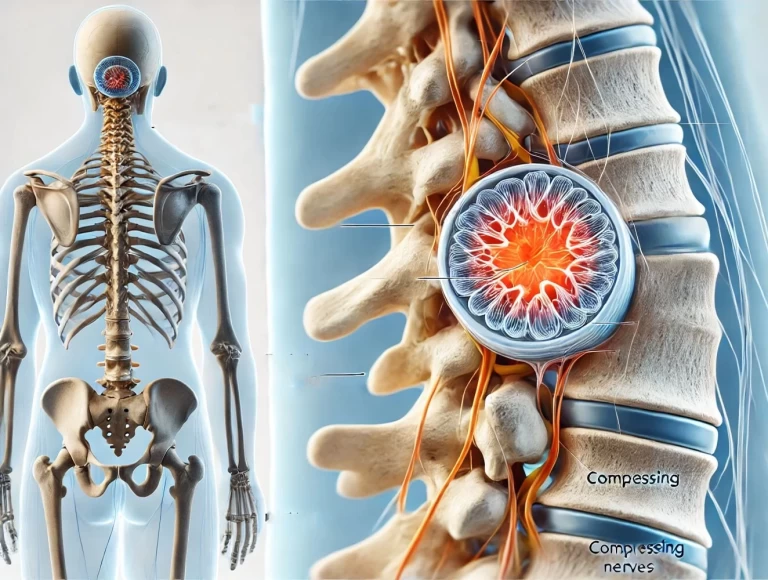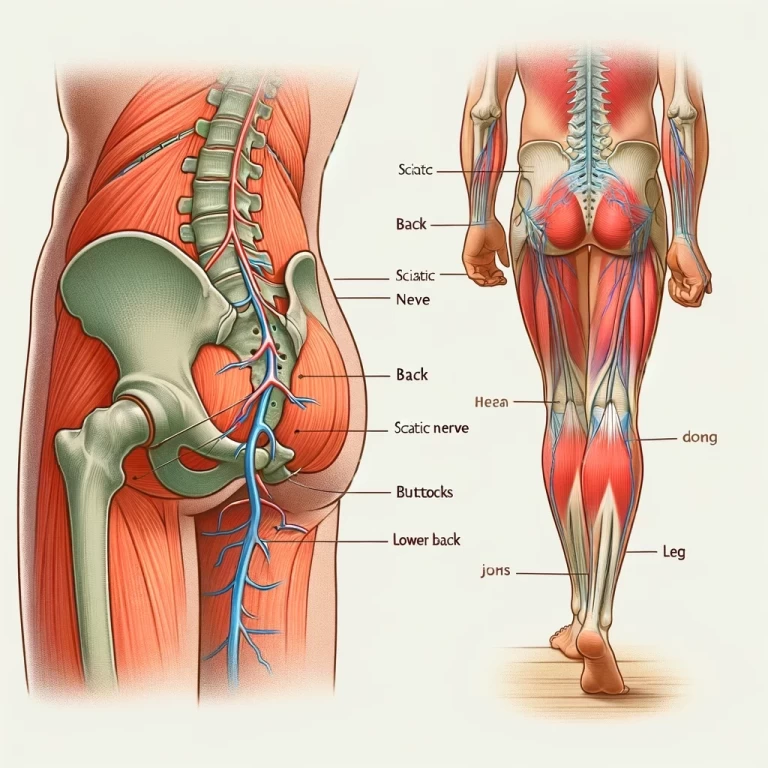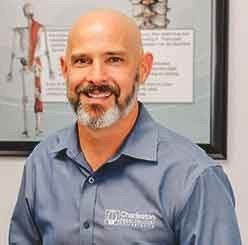
Disc herniations can significantly impact daily life, leading to pain, discomfort, and reduced mobility. These conditions can affect one's ability to perform daily activities and overall function. Seeking healthcare professional help, like a chiropractor, can shorten recovery time, reduce pain, and address the root cause to prevent future occurrences.
What is a Disc Herniation?
A disc herniation occurs when the soft, gel-like center of a spinal disc pushes through a crack in the tougher exterior casing. This condition is often referred to as a slipped or ruptured disc. Disc herniations can occur in any part of the spine but are most common in the lower back (lumbar spine) and the neck (cervical spine).
Symptoms and Daily Life Impact
The symptoms of a disc herniation can vary depending on the location and severity of the herniation. Common symptoms include:
- Pain: Sharp or burning pain in the affected area, often radiating to the arms or legs.
- Numbness and Tingling: Affected nerves can cause numbness or tingling in the extremities.
- Weakness: Muscular weakness in the affected area, which can impair the ability to lift or hold objects.
- Reduced Mobility: Stiffness and decreased range of motion, making daily activities challenging.
These symptoms can significantly disrupt daily life. Simple tasks such as bending, lifting, sitting, or walking can become painful and difficult. Over time, this can lead to a decrease in overall physical activity, affecting one’s quality of life.
The Role of a Chiropractor in Treating Disc Herniations
Chiropractors are healthcare professionals who specialize in diagnosing and treating neuromuscular disorders, focusing on spinal adjustments and manual manipulation. For individuals suffering from disc herniations, chiropractors can offer several benefits:
1. Pain Relief: Through spinal adjustments, chiropractors can help alleviate the pressure on the nerves caused by the herniated disc, providing significant pain relief.
2. Improved Mobility: Chiropractic care can help restore range of motion and improve flexibility, allowing patients to return to their daily activities with less discomfort.
3. Non-Invasive Treatment: Chiropractic care offers a non-surgical approach to treating disc herniations, avoiding the risks associated with surgical interventions.
4. Preventive Care: Chiropractors can address the root cause of disc herniation and provide guidance on exercises and lifestyle changes to prevent future occurrences.
Benefits of Chiropractic Care for Disc Herniations
Chiropractic care offers numerous benefits for individuals suffering from disc herniations:
1. Shorter Recovery Time: Chiropractic treatments can accelerate the healing process by improving spinal function and reducing nerve pressure.
2. Reduced Pain: Regular chiropractic adjustments can significantly reduce pain levels, improving the patient's quality of life.
3. Improved Function: Chiropractic care can enhance overall physical function and performance by restoring spinal alignment.
4. Holistic Approach: Chiropractors take a holistic approach to health, considering factors such as posture, ergonomics, and lifestyle to provide comprehensive care.
Preventing Disc Herniations
In addition to treating disc herniations, chiropractors play a crucial role in preventing future occurrences. They can guide on:
- Proper Ergonomics: Advising on proper workstation setup and body mechanics to reduce the risk of disc herniations.
- Exercise and Stretching: Recommending exercises and stretches to strengthen the core muscles and improve spinal health.
- Lifestyle Modifications: Offering tips on maintaining a healthy weight, staying active, and avoiding activities that may strain the spine.
Conclusion
Disc herniations can have a profound impact on daily life, leading to pain, discomfort, and reduced mobility. Seeking help from a chiropractor can offer significant benefits, including pain relief, improved mobility, and preventive care. By addressing the root cause of the problem, chiropractors can help patients recover faster and reduce the likelihood of future disc herniations.
If you're struggling with the symptoms of a disc herniation, don't wait. Contact a chiropractor today to learn how they can help you achieve relief and improve your quality of life. You can come to visit us anytime to see how we can help.







Leave a comment